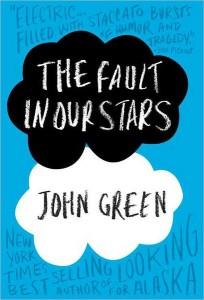 News flash – life isn’t fair and cancer is a non-discriminatory bastard that can jump into anyone’s life at any time. My great grandparents, two blue collar working class people well into their old age were both taken by lung cancer. My grandmother, a house wife who had recently lost her husband to heart disease, was almost taken by stomach cancer. Two girls who graduated high school with my sister were taken quickly just a few years ago by brain cancer. Former co-workers of mine are on both sides of the fence, some surviving breast and ovarian cancer while others have passed quickly due to aggressive stage 4 Melanoma. It seems everyone has a story of how cancer has touched their lives in some way.
News flash – life isn’t fair and cancer is a non-discriminatory bastard that can jump into anyone’s life at any time. My great grandparents, two blue collar working class people well into their old age were both taken by lung cancer. My grandmother, a house wife who had recently lost her husband to heart disease, was almost taken by stomach cancer. Two girls who graduated high school with my sister were taken quickly just a few years ago by brain cancer. Former co-workers of mine are on both sides of the fence, some surviving breast and ovarian cancer while others have passed quickly due to aggressive stage 4 Melanoma. It seems everyone has a story of how cancer has touched their lives in some way.
Cancer doesn’t seem to take into consideration things such as age, race or social standing. It doesn’t care what your belief system is and it won’t matter how many times you’ve decided to practice that belief system over the past few years. It doesn’t even seem to care about occupation, although some occupations or lifestyle choices can make your body a more tempting home for the disease. Dealing with cancer leaves you feeling triumphant or defeated, stronger or feebler, grateful or cheated.
The Fault in Our Stars by John Green takes the concept of “life isn’t fair” and shoves it right in our face. Immediately we are introduced to Hazel Grace Lancaster, a smart, perceptible 16-year old girl who is terminally ill with cancer. She’s also very obsessed with the notion of mortality.
While attending a support group for kids with cancer in the “literal heart of Jesus,” Hazel is introduced to Augustus Waters, a cancer survivor. At first Hazel is not interested in getting to know Augustus. After all, what’s the point in making friends if you’ll be leaving them behind soon? Hazel describes herself as a hand grenade about to go off. By cutting out her social life, she’s attempting to “minimize the casualties” after her death.
Augustus won’t be deterred. He’s immediately taken by Hazel and her unique look on life and her disease. He consistently corners her and, at first, forces her to spend time with him. As they become more acquainted, Hazel and Augustus begin to fall in love the way only two teenagers can, with an obsession that takes over their lives.
Apparently part of having cancer is the “cancer perks.” These could be a sympathetic flight attendant serving you booze even though you’re under age or a granted wish from the all-powerful “wish foundation.” Of course, there’s not enough perks in the world to make up for the fact that you have cancer, as both Augustus and Hazel continue to remind us readers as they manipulate the public around them.
The one thing that Augustus and Hazel have in common is their love for An Imperial Affliction, a book about a teenager with cancer who does not survive. For Augustus’ wish, he and Hazel are flown to Amsterdam where they meet the author of their favorite book. While there, they both lose their admiration for the man behind the creativity of An Imperial Affliction and their virginity.
You would think that the trip to Amsterdam would be the climax of this book. That everything that happens after will be downhill until you get to a nice neat conclusion – Hazel’s inevitable death. But that is not Green’s style. He takes us even further up the hill and then sends us crashing down the other side.
The Fault in our Stars is not a “feel good” story. It doesn’t leave you all warm and cozy, but instead sort of numb. That being said, it’s a beautiful story about all the victims of cancer – from the dying, to the survivors to those who are left behind when someone passes away. Green is unapologetically honest about the facets of this disease and how it affects those victims including how unfair cancer can be. In the words of Augustus: “The world is not a wish granting factory.” 5 stars. I would recommend this book to anyone from 13 to 99 who is mature enough to handle the subjects of mortality and first love and isn’t prone to acute bouts depression.
Have you ever known anyone who had either survived or died from cancer? What do you remember most about that time?

